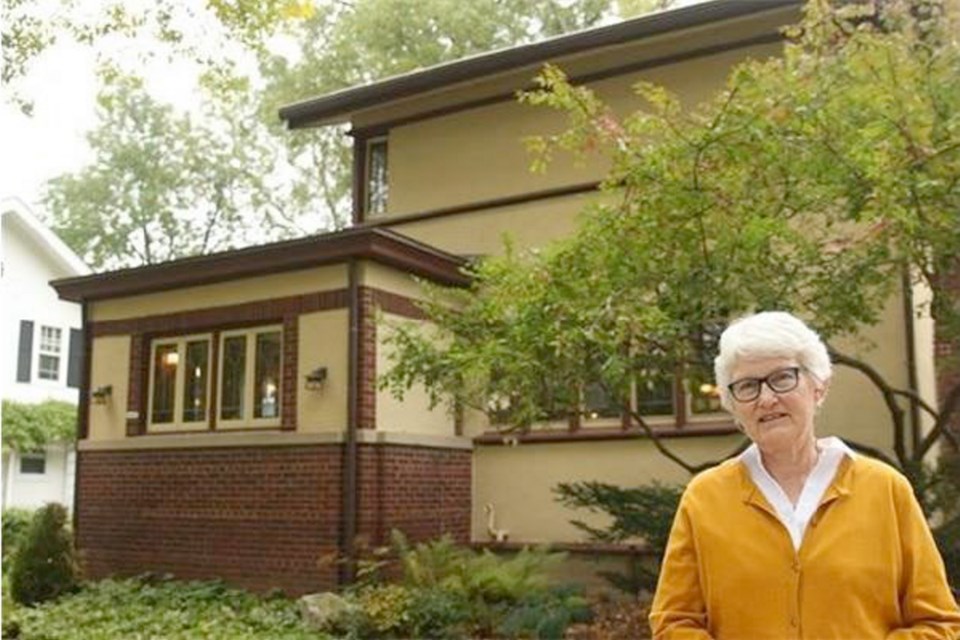MADISON, Wis. - Linda McQuillen long wondered whether her 1917 home had any connection to Frank Lloyd Wright, thinking at best maybe one of his peers designed it as an imitation of the architect's famous Prairie School style. It turned out she was living in the real thing.
Wright experts announced that the Madison house McQuillen bought for $100,000 has been verified as an American System-Built House, part of Wright's effort to develop and market well-designed homes at a more affordable level — his first effort to reach a broader audience. It's the second such house identified in the past four months, one out of only 16 ever built and 14 still standing.
"It's pretty exciting, I've got to tell you. And pretty overwhelming," McQuillen said, sitting in the front room of the 1,800-square-foot house she spent a quarter of a century refurbishing and decorating with Mission-style furniture.
It took years to unearth the evidence about McQuillen's home, located in a neighbourhood less than half a mile from the University of Wisconsin campus where Wright went to school in the 1880s.
This much was known: It was constructed in 1917, an addition was built in 1924, and an open-air porch facing the street was enclosed three years after that. By the time McQuillen bought it in 1989 it was in such bad shape that a tree was growing through the roof of the garage.
"Over time we have completely redone the house without any indication it was a significant house," said McQuillen, 69, a retired teacher who now works part-time for the university as a math education consultant. "I didn't know it was a Frank Lloyd Wright home and had no imagination it would be."
The first real clue she got that the stucco home adorned with leaded glass windows may have any real Wright connection came in November 2009, when she received a letter from Mary Jane Hamilton.
Hamilton, a Wright scholar who has written about the architect's family and homes in his native Wisconsin, had been hearing whispers about the Madison house for years but had never been able to prove a link to Wright.
There was no reference to it in any of the catalogues of known Wright homes, and it had some distinctly uncharacteristic elements, like a band of dark red brick around the stucco exterior. There were no known drawings of the home linking it to the first owner, and no photos had been found showing the house as it looked when it was first built.
Hamilton said her "eureka" moment came when she found a 1917 Wisconsin State Journal newspaper advertisement by a Madison building company offering the American System-Built Homes. The same company was named on the 1917 building permit for McQuillen's home, which indicated it was building a spec house.
Hamilton and Mike Lilek, curator of the Wright-designed American System-Built Homes in Milwaukee, toured McQuillen's home in November 2009 and quickly found other indications that they may have made a significant discovery.
Framing studs in the basement were 24 inches on centre, a known Wright deviation from the typical 16-inch span. The window pattern is custom designed, along with the latches.
Since then, Hamilton worked to gather more proof, including finding a drawing among more than 900 of the American System-Built Homes in Wright's archive at Taliesin West in Arizona that resembled McQuillen's house. All the evidence they collected led Hamilton and Lilek to finally conclude that the home was an authentic Wright.
It's also the first and only known example of the AA model from Wright's American System-Built House series ever constructed, Lilek said.
McQuillen said the news makes the money and hard work she invested in fixing up the house more than worth it.
"It does feel like a reward, a vindication that when I saw the house and could see beyond the disrepair that I knew there was something substantive," she said. "The house really spoke to me."



